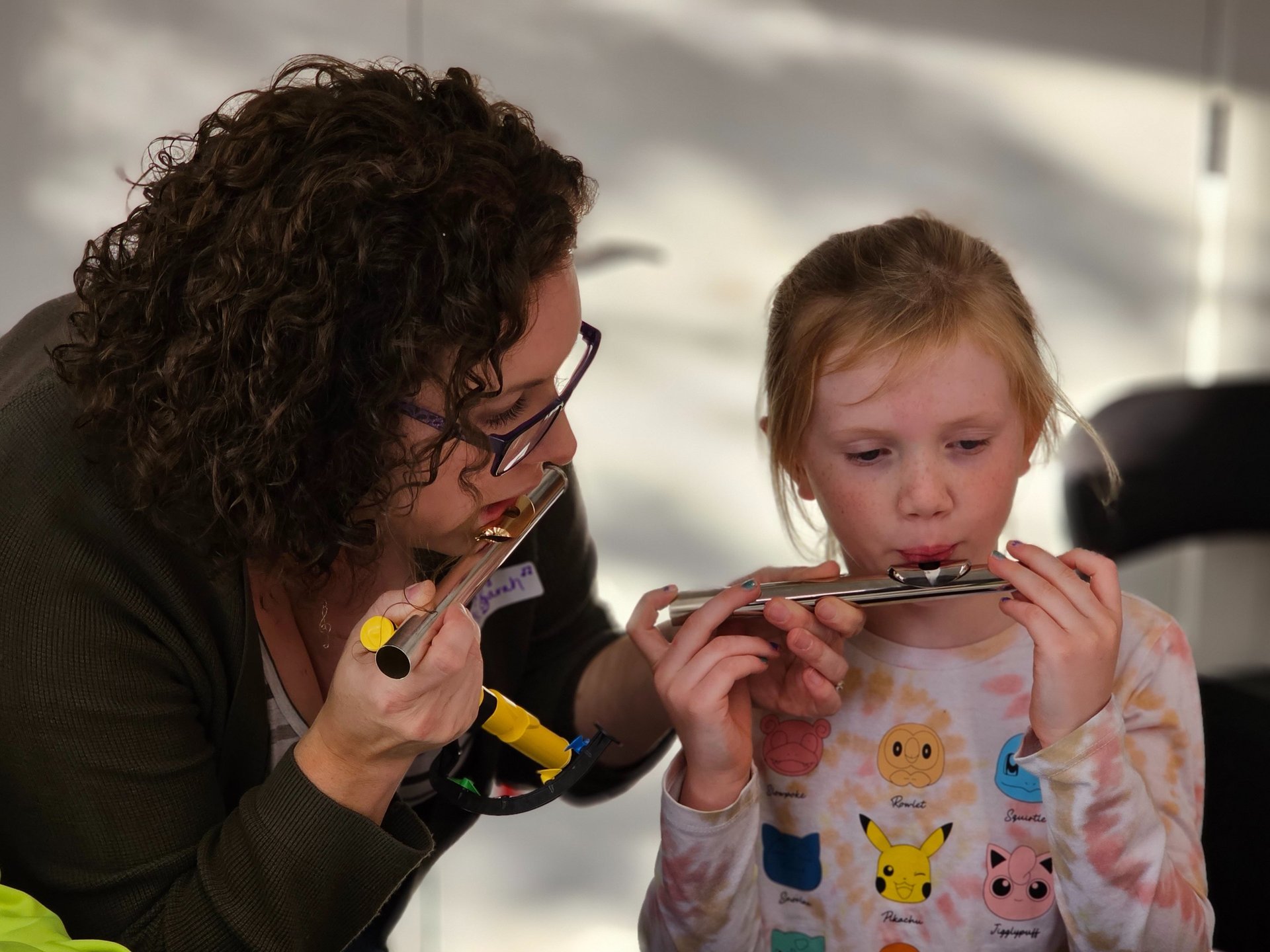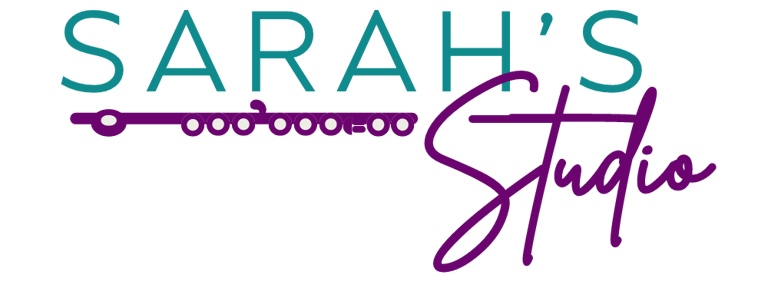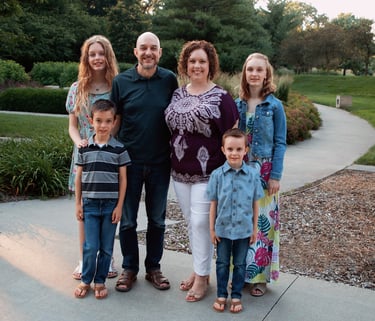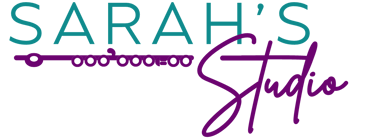
10 Reasons Why Music Lessons Should be on Your Young Child’s Activity List
Is EARLY music education all it's cracked up to be?
BENEFITS OF CHILDHOOD MUSIC LESSONS
As a parent, you just want the very best for your kids.
▹ A joyful childhood.
▹ An excellent education.
▹ Awesome friends and mentors.
▹ Ample opportunity to discover their own passions.
▹ And the drive to go out and make their dreams come true and change the world.
I get it. I’m a mom of four and, by golly, it’s easy to get caught up in the parenting race. To feel obligated to try ALL. THE. THINGS.
We taught our kids to sign before they could talk. Tried the “teach your baby to read” thing with our first (she still didn’t read on her own until Kindergarten). Signed up for Kindermusik and soccer. Started piano lessons before preschool. Enrolled in 3-year-old dance classes (a toddler in a tutu is priceless!) and gymnastics. Even moved into our ideal neighborhood in an excellent school district before our kids were born.
All because we just wanted to give them an edge in life.
There’s nothing wrong with that! But how do you know what things are worth putting on your parenting plate, and which ones are just “adding to the noise?”
Well, spoiler alert…I don’t have the answer. Not exactly.
The things you value as a parent and experiences you have had in your own life will have a tremendous impact on what activities you choose to expose your child to, where they will go to school, and even who they will interact with. So there’s no one-size-fits-all answer.
But for me, one of the things I value most is of course music.
As a musician and music educator, I may be more than a little biased about the importance of childhood music education–early childhood music education in particular–and that belief has shaped my parenting in a big way.
The good news is, there is plenty of bona-fide research to back up my parenting choices in the music education arena. And I think every parent should fight to introduce music education in their child’s life as early as possible, and keep it there as long as possible too.
Let me show you why.
More than any other single arts or sporting activity, music lessons give your child a boost in:
Cognitive Function (i.e., Brain Power!)
Well, it is a misrepresentation of the facts to say that putting Mozart on in the nursery will make your baby smarter. But research does support that the act of playing a musical instrument stimulates neural plasticity, which is a fancy way of saying that our brains can literally can grow in mass when it is exercised, just like your muscles bulk up when you work out.
In fact, the regions of the brain related to auditory, motor, and visual skills are more specialized in expert musicians, and those regions are even larger in size in the musician’s brain than a non-musician’s brain.
So yes, music lessons can make your child smarter. Who knew?
Music and Learning: Does Music Make You Smarter?
By Gabriella Musacchia & Alexander Khalil
Here’s a fun TED-Ed video by researcher Anita Collins that really explains this phenomenon well.
Exactly how much smarter though? Well, that’s an important question because the research is not always in agreement.
This NEW study by Mariangela Lippolis, et al., suggests that the intensity of music training (the amount of time spent in both teacher-led instruction and private practice) directly corresponds to the amount of “brain benefit” the student may experience.
So, it’s not enough to just attend lessons; you actually have to practice 🙂
The Power of Practice: A Longitudinal Study, Systematic Review, and Meta-analysis on the Role of Intensity of Music Training For Enhancing Musical and Non-Musical Abilities. April 2025. By Mariangela Lippolis, et al.Concentration & Focus
“A child psychiatry team has found that musical training might also help kids focus their attention, control their emotions and diminish their anxiety”
Could playing Tchaikovsky's 'Nutcracker' and other music improve kids' brains? University of Vermont. ScienceDaily, 23 December 2014.Memory
“Music training…helps improve certain memory capabilities outside of music.”
Music Training Helps Learning & Memory: Bless your kids with music educaton (Psychology Today), by William R. Klemm, Ph.D (Click here to read the full abstract of the study Dr. Klemm cites)Speech and Language Development
A 2004 Stanford University study by Prof. John Gabrieli was the first to show that mastering a musical instrument improves the way the human brain processes parts of spoken language. Musicians found it easier than non-musicians to detect small differences in word syllables and distinguish split-second differences between rapidly changing sounds that are essential to processing Language. Functional magnetic resonance imaging showed that musicians had more focused, efficient brain activity.
Playing music can be good for your brain / Stanford study finds it helps the understanding of language
By Carrie Sturrock
Refers to the Nov. 2005 Study by Stanford Professor John GabrieliMotor Skills
It might seem obvious, but instrumental music lessons in childhood are going to promote healthy motor skills and hand-eye coordination.
In fact, it is widely known that many medical schools and institutions prefer applicants with a strong musical background, both for the cognitive boost music lessons offer, as well as the fine motor development. We certainly want our future doctors and surgeons to have both a big brain and a steady hand with a scalpel!Emotional Regulation and Behavioral Maturation
“One of the largest scientific studies into music's effect on the brain has found something striking: Musical training doesn't just affect your musical ability — it provides tremendous benefits to children's emotional and behavioral maturation.”
Science Just Discovered Something Amazing About What Childhood Piano Lessons Did to You
“Music training not only helps children develop fine motor skills, but aids emotional and behavioral maturation as well, according to a new study, one of the largest to investigate the effects of playing an instrument on brain development.”
Music lessons spur emotional and behavioral growth in children, new study says Washington Post ArticleExecutive Function
Musicians must learn an entire set of essential life skills to manage their own personal practice and performance. Things like building a daily practice habit, time management during a practice session, staying on task, delaying gratification (getting piano practice done before playing a video game, for example), understanding their assignment, and remembering how to execute certain skills their teacher showed them in a lesson.
While the music lessons themselves don’t magically make a child do all of these things perfectly, they provide a structure for regularly practicing these personal management skills, which transfer to all areas of life, such as school, work, and relationships.
Research from 10 studies supports that music training has a positive effect on the three main types of executive function: inhibitory control, working memory, and cognitive flexibility in preschool children aged 3–6 years.
Effects of music training on executive functions in preschool children aged 3–6 years: systematic review and meta-analysis. PubMed. By Yanan Lu, Lin Shi, Ahmad Faudzi Musib
And because playing a musical instrument promotes cross-hemisphere connections within the brain, musicians that may struggle with conditions such as ADHD (a condition that is exacerbated by a disconnect between the two hemispheres of the brain) can see considerable improvement in their symptoms (especially regarding those those executive-functions named above) simply by practicing their instrument regularly.Leadership Qualities
Becoming an experienced flutist and teacher has challenged me MORE THAN ANYTHING ELSE IN MY LIFE to step into leadership roles.
As a music studio owner, I have families and students looking to me for guidance and encouragement.
As an ensemble member, I must arrive at rehearsals prepared and with valuable insights to share to make the most of our practice time.
As a music student, I had to be brave to step into the audition room, or announce my piece to an adjudicator. I couldn’t hide behind my natural introversion.
As a teacher, I have to be ready to address a roomful of students or colleagues to communicate my expertise and experience for their benefit.
Music lessons are a vehicle for self-improvement and discovery that produces strong leaders.Social Connection and Mental Health
Playing a musical instrument puts you in a special club. Marching Band. Choir. Orchestra. A Rock Band. A Woodwind Quintet. Music School.
Musicians find their people and when they play with one another, and there is strong evidence to suggest that music students are at a much lower risk of isolation and mental health issues because they are strongly connected to a larger community of peers.Personal Enjoyment and Creativity
This one’s my favorite, and I don’t need any scholarly papers to tell me it’s true: music is just fun! It’s in our DNA.
As a musician, I will never run out of pieces to play or listen to, or inspiration in our natural world to fuel my next composition. It is as much a part of me as the air I breathe. It brings me immense pleasure and satisfaction and ample opportunity to stretch my creativity.
And starting EARLY is key also. Did you know that…
👉Researchers have identified a “sensitive period,” in other words, a period of time during childhood when the brain is most receptive to growth in music-related pathways.
Music lessons starting during the sensitive period can maximize the cognitive benefits of music learning by producing even stronger connections in the brain compared to starting music lessons later.
There is evidence that young children who take music lessons show different brain development and improved memory, compared to children who do not receive musical training. (First Evidence That Musical Training Affects Brain Development In Young Children. By Dr Laurel Trainor, Professor of Psychology, Neuroscience and Behaviour at McMaster University and Director of the McMaster Institute for Music and the Mind)
👉How early does music training need to start to see these increased benefits, you ask?
In his article Music Training Helps Learning & Memory: Bless your kids with music educaton (Psychology Today), author William R. Klemm, Ph.D, suggests that the greatest benefit occurs if music training begins before age 7!
And auditory development may benefit from musical training during the sensitive period before the age of 5, as explained in Ewa Miendlarzewska and Wiebke J. Trost’s extremely thorough presentation of a wide variety of scholarly research: How musical training affects cognitive development: rhythm, reward and other modulating variables
👉What’s even more remarkable is that those increased brain benefits aren’t limited to the period of time when music instruction is taking place.
“Music lessons in childhood may lead to changes in the brain that persist years after music lessons stop!” according to Perry Klass, M.D. (Early Music Lessons Have Longtime Benefits) and Erika Skoe & Nina Kraus (A little goes a long way: How the Adult Brain Is Shaped by Musical Training in Childhood)
👉It stands to reason that early music education puts kids at an advantage to gain a greater fluency in their art through their years of music-making, which can translate into a lifelong enjoyment of music.
Learning to play a musical instrument is a many-faceted ability that takes years of dedication and intentional work. When children begin the process early, during the sensitive period before age 7, they are given a “head start” in developing the necessary skills while their brains are most receptive. And the process is likely to feel more fun and enjoyable.
Think of it this way. The things we pick up early in life seem to be so well-ingrained, it’s hard to imagine not knowing them or possessing that skill.
Riding a bike…
Speaking and reading your native language
Tying your shoes…
Saying the alphabet…
Counting to 100…
But put yourself in a different set of shoes now…What if you never had a parent or friend teach you how to ride a bike when you were little? Somehow, you managed to slip into adulthood not possessing that basic ability. It certainly wouldn’t be impossible to learn. But it would definitely be frustrating and perhaps take a disproportionate amount of time to conquer your first bike ride. And you may never really love riding a bike, even after you can technically do it.
A European report on early childhood music puts it beautifully: “Early positive experiences with music can be the foundation for a lifelong engagement with music as a personally meaningful part of life.”
Reference: European Music School Union. (2022). Music Right from the Start: Theory and Practice of Early Childhood Music Education
“The advice for parents and educators is therefore clear: promote instrumental training in early childhood, as it may result in life-long advantages.” - Miendlarzewska & Trost
So I encourage you, fellow parent, to keep giving your child all the amazing opportunities and experiences that will help him or her grow up to be a well-rounded, intelligent, centered individual.
Try out for the basketball team…
Sign up for the robotics classes…
Learn a foreign language with your kids…
Check out that Ninja Warrior gym….
But do me a favor: make sure one of those things you keep on your plate is music lessons.
And get started early.
Then sit back and enjoy the ride, knowing you are giving your child a very special and unique edge in life through the joyfulness of making music.




